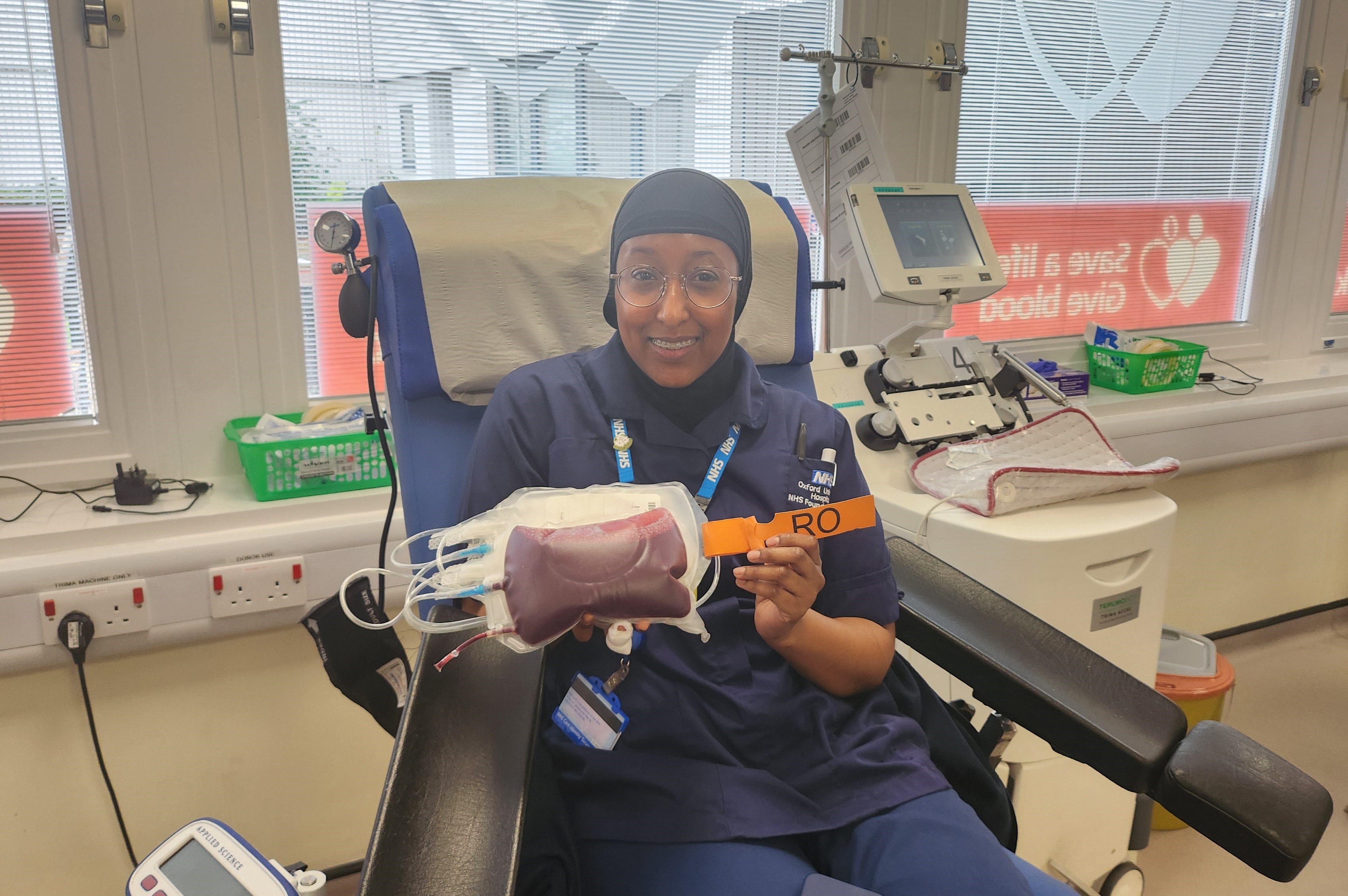“I've seen how vital blood transfusions are”
Twenty-nine-year-old Amino Ali is a renal nurse at Oxford University Hospitals. Her care and her dedication make all the difference to people in need.
But alongside her work looking after patients, Amino has been making another lifesaving impact: she gives blood.
"I always wanted to donate, but I never knew how," says Amino. "It wasn't until I discovered how close the donation centre was to where I was working that I took the first step.
"It only took about fifteen minutes to actually donate the blood, and the process was so quick and easy – so different to what I'd expected."

Many first-time donors express surprise when, like Amino, they realise how little time giving blood can take. Few, however, will be told that they have in that time donated Ro blood.
Ro is a blood subtype that is shared by only around 2% of donors. It is vital in the treatment of sickle cell disorder and the demand for it continues to grow.
"I didn't realise how valuable Ro blood was until I saw the importance placed on it by staff at the donor centre," says Amino. "When I found out, I felt special and motivated to donate more. It's fulfilling to know that every donation I make could save up to three lives.
There are many people of Black heritage in need of regular blood transfusions for conditions like sickle cell, and yet there are not enough people from these backgrounds donating.
"I am committed to fitting donations around my work, particularly looking for appointments on my days off. It's not as time-consuming as I thought, and my patients are a constant reminder of how every donation makes a difference."
 Determined to make as much of a difference as possible, Amino has also started to encourage friends and family to donate too.
Determined to make as much of a difference as possible, Amino has also started to encourage friends and family to donate too.
Although blood donors from all ethnic backgrounds are needed, there is currently a particular need for more Black, Asian, and minority ethnic donors. Patients, such as those being treated for sickle cell, often need closely matched blood from donors from similar ethnic backgrounds.
(Picture: Amino during her recent blood donation at Oxford donor centre)
"There are many people of Black heritage in need of regular blood transfusions for conditions like sickle cell, and yet there are not enough people from these backgrounds donating," says Amino. "Breaking the misconceptions and donating regularly is vital for saving more lives”.
"As a renal nurse, I've seen how vital blood transfusions are for patients. It's not just about improving their health; it's about restoring their energy and quality of life."
If you or someone you know would like to start saving lives, please register to give blood now.
